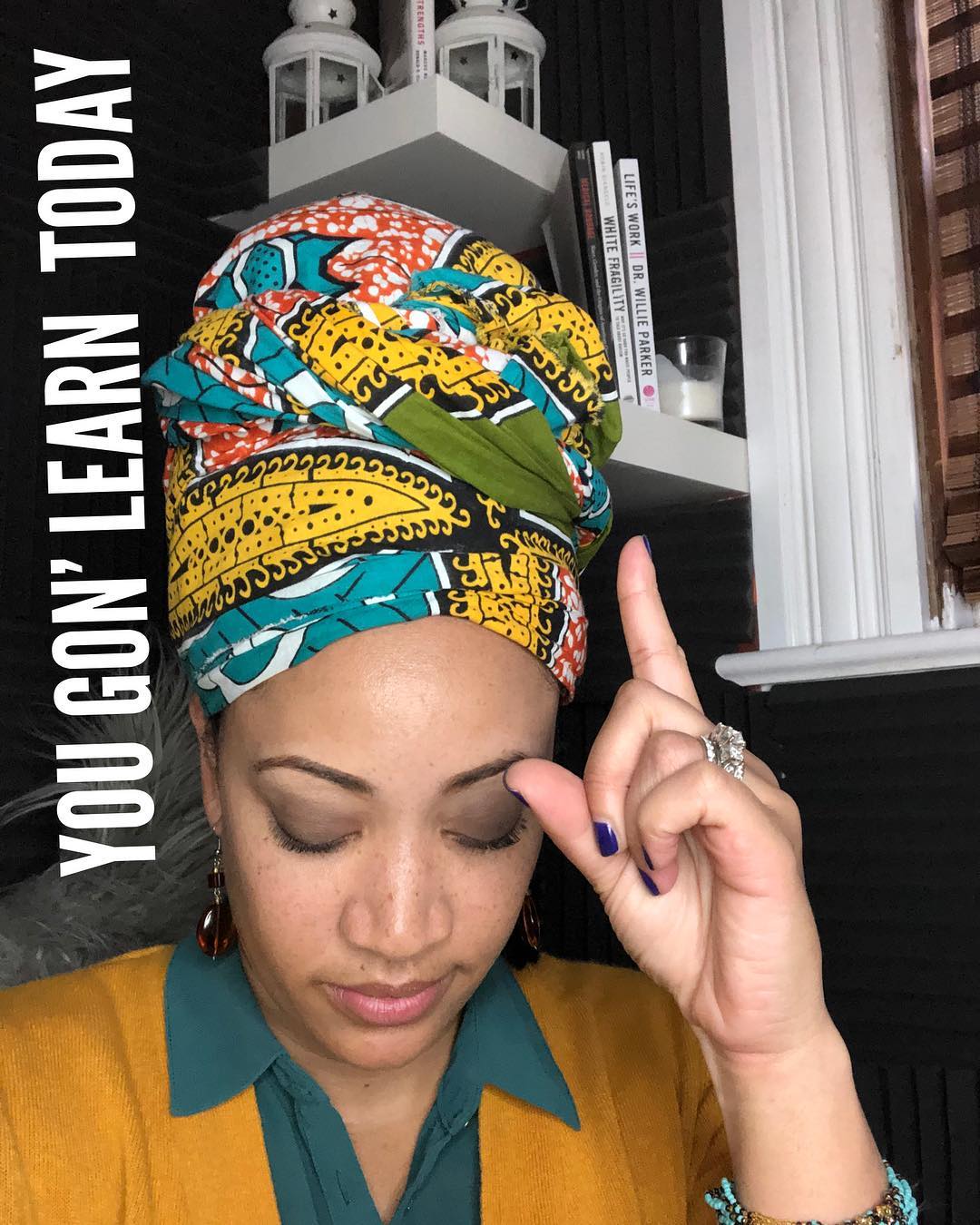Ladyparts is a podcast that takes a wide view on women’s health.
I believe that in order for women to make informed decisions about our health, we have to break taboos against publicly discussing our basic bodily functions and most perplexing symptoms. Ladyparts takes a wide view, attempting to bridge the divide between mainstream medicine and holistic healthcare.
This is also about the decisions we make as a society that impact women’s bodies, minds, and wellbeing. We look at where the healthcare system supports women and girls, and where it lets us down hard. We think about women’s bodies in the working world, and how we can bend the paradigm towards gender parity. This is a resource for people who were born with female anatomy as well as those who identify as female. We’re greater than the sum of our parts (but the sum of our parts is pretty frickin great too).
Ladyparts wrapped its first season in June 2019.
Episode 9: Womb Massage
Megan Assaf had extremely painful periods from the beginning. In her late 20s, she found out her uterus was upside down, folded in half, off to the left and stuck behind her colon. She didn’t learn this from a doctor, but from a holistic healer working in a tradition that comes from the Maya people of Belize. What’s more, Megan got her uterus repositioned, and learned how to do this very hands-on work herself. Megan Assaf is a massage therapist who works with women, and has moved hundreds of uteruses, including Andrea’s.
This interview was originally recorded in 2012 for the Sound Medicine Radio Hour. Listen to "Can Abdominal Massage Help Painful Menstruation?"
This is the last episode of Season One of LadyParts. Thanks to Melissa Davis, Eamon Linehan, Brendon Linehan, Nikki Katz, and Rev Kev Ewing at Baobab Tree Studios in New Haven for their help and support this season. The Ladyparts theme song is by Adam Ragusea. Other music in this episode by Meavy Boy. Our logo is by Jamie Squire.
As always, we appreciate a rating and review on Apple Podcasts.
Episode 8: Healing Justice
This episode is a conversation with Hanifa Nayo Washington and Thema Haida, two women healers who recently opened a holistic healing center in New Haven, Connecticut. The center is called One Village Healing and it’s a bit different from other holistic health spaces you may have been to - it runs on the values of Healing Justice. That means collective healing from injustice and systems of oppression. Ladyparts takes a wide view on women’s health, and we’re not going to focus on reproductive health on this episode. Rather, we invite you to think about how this approach to caring for ourselves can improve the health of women, people of color, people with disabilities, and other marginalized groups.
Hanifa Nayo Washington (left) and Thema Haida are the founding practitioners of One Village Healing in New Haven, Conn.
Episode 7: Midwifery and Maternal Health
Host Andrea Muraskin and guest Joan Combellick recording at Baobab Tree Studios in New Haven, CT
Midwives are specialists in normal physiologic birth, but only about 12 percent of babies in the US are delivered by midwives. In this episode, two midwives make the case for how better integration of midwifery into the US medical system could help lower this country's high rate of maternal mortality, cut down on unnecessary interventions, and make birth a more dignified, healthier experience for moms. First, Joan Combellick, puts midwifery and US maternal health outcomes in a global context. Then, Stephanie Mitchell speaks to the experiences of black women in the maternal health system, and the importance of being an advocate for her patients.
Stephanie Mitchell (@doctor_midwife) on Instagram previewing a live video in her home studio.
Joan Combellick, CNM, MPH, PhD. Joan Combellick is a certified nurse midwife with 25 years of clinical experience in the Hudson Valley region of New York. Joan is currently working as a Women's Health Research Fellow at the Connecticut VA Health System
Stephanie Mitchell, CNM, MSN, DNP. Stephanie Mitchell is an advance practice Certified Nurse Midwife in private practice in Providence, Rhode Island. Prior to becoming a midwife she worked for ten years as a labor and delivery nurse at Brigham and Women's Hospital in Boston, Massachusetts. Follow Stephanie on Instagram @doctor_midwife and check out her podcast, Doctor Midwife- at Your Cervix.
Support Ladyparts on Patreon and get access to extended cuts of this and other interviews. Join the conversation on our closed Facebook group.
Interested in sponsoring this podcast? Email revkev@baobabstudios.tv.
Bonus Interview: Libby Hopton on the Origin of Endometriosis
Endometriosis was identified almost 100 years ago. Over the years, multiple theories have been developed to explain how tissue similar to that of the uterine lining comes to implant in other parts of the pelvis. The origin of the disease is still a matter of disagreement at medical conferences and on social media alike.
Libby Hopton is a research consultant in endometriosis and the founder of the Facebook support and information group Endometropolis, and a patient. While not a physician, she has evidence-based insider's view. After attending the Endometriosis Foundation of America conference in New York City, Ladyparts host Andrea Muraskin called Hopton to get some clarity on the debate, and how much it matters from a patient perspective.
Related episode:One in Ten- Taking a Wide View on Endometriosis
Episode 6: One in Ten - Taking a Wide View on Endometriosis
March is endometriosis awareness month. But here’s the thing about these months: they tend to highlight something we should be paying more attention to all the time. Endometriosis is a condition in which tissue similar to the lining inside the uterus (called “the endometrium”), is found outside the uterus, where it causes a chronic inflammatory reaction.
On left: endometriosis in the wall of the Fallopian tube in a hysterectomy and bilateral salpingo-oophorectomy specimen. On right, native muscosa and lumen of Fallopian tube. Credit: Ed Uthman via Flickr.
Symptoms include painful periods, painful ovulation, painful sex, heavy bleeding, chronic pelvic pain, and fatigue. It’s also a major cause of infertility. The disease affects an estimated one in ten women in their reproductive years.
In Episode One, we took a deep dive into Orilissa, a new hormonal drug developed to treat endometriosis. This time, we’re zooming out.
Guests:
Lucky Church, supportive husband of an endometriosis patient
Linda Griffith, PhD, Founder & Director, Center for Gynopathology Research, School of Engineering, MIT, and endometriosis patient
Serdar E. Bulun, MD, Chair Dept. OB/GYN, Northwestern Univ. & Prentice Women’s Hospital
Amy Jane Melhuish, patient and advocate launching the EndoGate™ portal, a "global information superhighway" for patients and practitioners
Marc Possover, MD, President of the International Society Of Neuropelveology and Director, Possover International Medical Center
Tamer Seckin, MD, Attending physician Lenox Hill Hospital and Founder, Endometriosis Foundation of America
Ladyparts is hosted and produced by Andrea Muraskin, in partnership with Baobab Tree Studios in New Haven, Connecticut. Production help this week from Melissa Davis. The Ladyparts logo is by Jamie Squire, and our theme song is by Adam Ragusea.
Thanks to the Endometriosis Association of America for welcoming us at their annual conference.
Episode 5: Expanding Gender, Love and Sex
Guest Ariel Vegosen is a gender inclusivity trainer and sex educator who is proud to be kinky, queer, and genderblended. No matter your gender identity, Ariel says expanding your understanding of gender benefits everyone. Andrea and Ariel discuss life beyond the gender binary, femininity, polyamory, self-love, strap-on sex and more.
Courtesy Ariel Vegosen
Learn more about Ariel Vegosen’s work at genderillumination.com, shinediversity.com and polyexcellent.com.
Support Ladyparts on Patreon and get access to extended cuts of this and other interviews. Join the conversation on our closed Facebook group.
Interested in sponsoring this podcast? Email nikki@baobabstudios.tv.
Ladyparts is hosted and produced by Andrea Muraskin. Production help this time from Kevin Ewing at Baobab Tree Studios and Abby Maddan. Editorial support for this episode from Lewis Wallace. The Ladyparts logo is by Jamie Squire, and our theme song is by Adam Ragusea. Other music for this episode by Blue Dot Sessions.
Episode 4: Mind/Body
This episode explores the mind-body connection from two very different angles. We hear Functional Medicine doctor and OBGYN Jessica Wei on how stress, hormones and the gut affect mental health and mood. And later in the episode, psychoanalyst Jamieson Webster on how women and girls diagnosed with hysteria changed the way we treat mental illness, and why that seemingly outdated diagnosis still matters today.
Episode 3: Bleeding Room
“The Maiden” from the series “Hamsas for the Divine Feminine” by Bekah Starr
No-one wants to be in pain. In previous episodes we’ve discussed ways to help alleviate menstrual pain with medication, acupressure, herbs, and even surgery. But aside from not being in pain, if you bleed, when you bleed, what do you want?
In this episode, we explore the concept of creating a special place in time and space for menstruation. Sometimes this happens by choice, as in the practice of “conscious menstruation,” and sometimes it’s enforced, as under cultural or religious taboos. What can we learn from taking a step back, turning away, in whatever small way, from society, from routine, and attuning to our internal cycle?
Episode 2: Going with the Flow - Traditional Chinese Medicine for Women's Health
Traditional Chinese Medicine (TCM) presents a completely different framework for understanding the body, and can be used on its own or in concert with conventional medicine. Guest Erik Harris is a holistic healing practitioner based in Connecticut. He holds a certificate in TCM from the Wu Healing Center in West Hartford, Connecticut, and he also has a bachelor's degree in psychology from Springfield College. Erik explains the TCM concepts of yin and yang, energy meridians and more. Plus: Chinese medicine approaches to infertility, painful periods and menopause symptoms.
Traditional Chinese Medicine (TCM) presents a completely different framework for understanding the body, and can be used on its own or in concert with conventional medicine. Guest Erik Harris is a holistic healing practitioner based in Connecticut. He holds a certificate in TCM from the Wu Healing Center in West Hartford, Connecticut, and he also has a bachelor's degree in psychology from Springfield College. Erik explains the TCM concepts of yin and yang, energy meridians and more. Plus: Chinese medicine approaches to infertility, painful periods and menopause symptoms.
Subscribe:
Apple Podcasts/iTunes. Google Play Music/Google Podcasts. Spotify. Your favorite podcatcher via rss
Episode 1: A New Drug for Endometriosis
The reproductive disorder endometriosis affects one in ten women. It can cause debilitating periods, pelvic pain and infertility. Endometriosis is most often treated with birth control pills or surgery. But this summer, the FDA approved the first ever medication formulated specifically to treat this disease. Elagolix, or Orilissa, suppresses the estrogen that fuels endometriosis, without putting the body into a full-blown menopausal state, as older drugs did. Yet expert disagree on its efficacy. And with a price tag of $1000 a month, is Orilissa worth it?
Subscribe:
Apple Podcasts/iTunes. Google Play Music/Google Podcasts. Spotify. Your favorite podcatcher via rss
The reproductive disorder endometriosis affects one in ten women. It can cause debilitating periods, pelvic pain and infertility. Endometriosis is most often treated with birth control pills or surgery. But this summer, the FDA approved the first ever medication formulated specifically to treat this disease. Elagolix, or Orilissa, suppresses the estrogen that fuels endometriosis, without putting the body into a full-blown menopausal state, as older drugs did. Yet expert disagree on its efficacy. And with a price tag of $1000 a month, is Orilissa worth it?
Subscribe:
Apple Podcasts/iTunes. Google Play Music/Google Podcasts. Spotify. Your favorite podcatcher via rss









